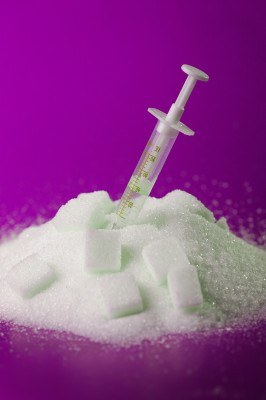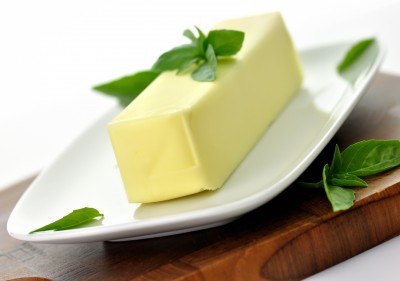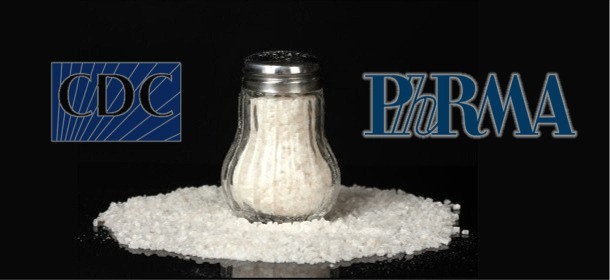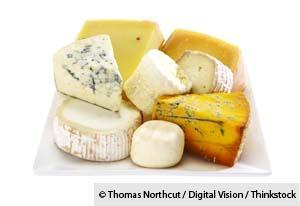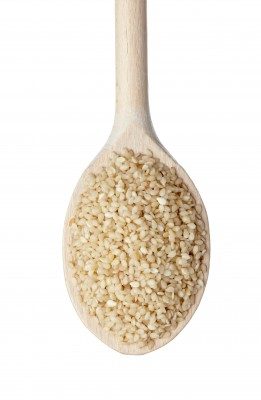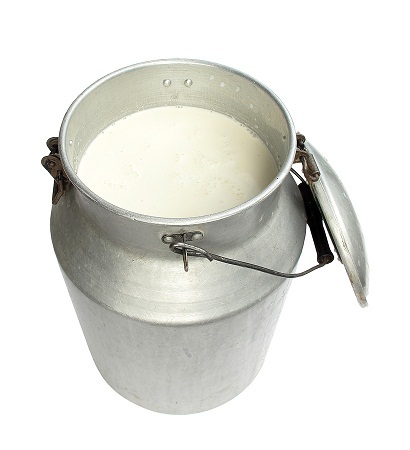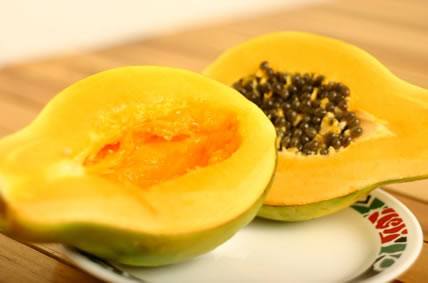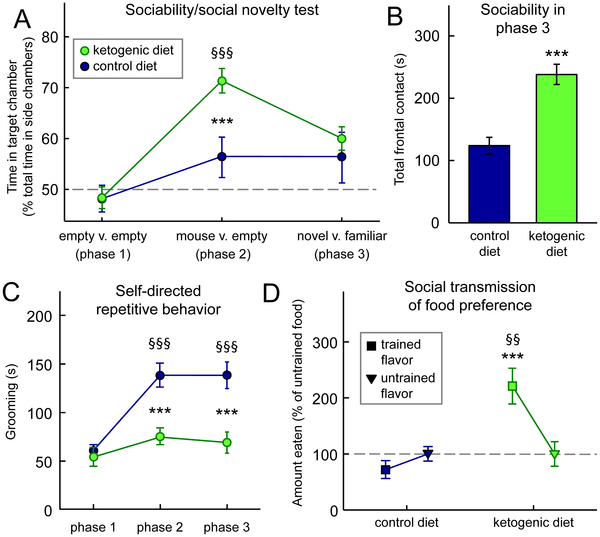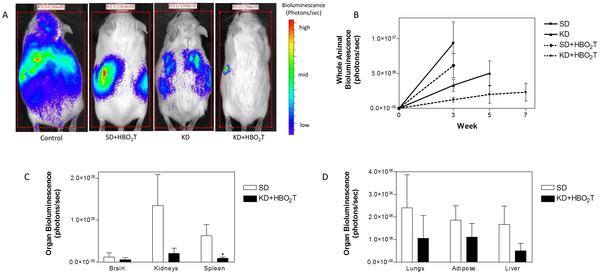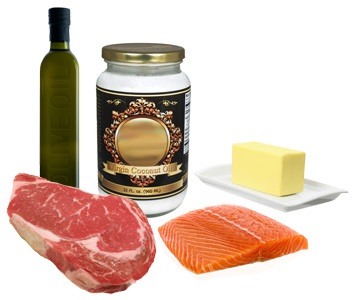News regarding traditional wisdom and native diets regarding nutrition.
USDA Wants Fewer Poultry Inspectors—But More Chemicals
In an effort to “modernize” and “streamline”, filthy commercial chickens will now be “sanitized” using twice as many dangerous chemicals. The Obama Administration is proposing the implementation of “new methods in poultry inspection.” What does this mean? Fewer inspectors, less oversight, and, to compensate, an increased reliance on “antimicrobial intervention”, which is generally the use of high levels of chlorine or other antimicrobial agents to reduce pathogens on the meat.
Ketogenic Diet in Combination with Calorie Restriction and Hyperbaric Treatment Offer New Hope in Quest for Non-Toxic Cancer Treatment
A mounting body of research suggests most cancers are highly responsive to therapeutic ketosis - a natural physiologic state induced during prolonged states of decreased glucose - in combination with calorie restriction and use of hyperbaric oxygen therapy. Healthy cells have the metabolic flexibility to adapt from using glucose to using ketone bodies. Cancer cells lack this metabolic flexibility, so when you eliminate carbs, which are metabolized to glucose, you effectively starve cancer of its primary fuel source.
Splenda® Sucra-Highs and Sucralose: Miracle Sweetener or Cause of Leukemia?
While millions around the world consume foods and beverages sweetened with Splenda (sucralose) with abandon, an accumulating body of research indicates that this synthetic chemical is far from safe, may contribute to obesity and blood sugar disorders, and more recently has even been linked to leukemia in animal experiments.
5 Most Common Low-Carb Mistakes (And How to Avoid Them)
There are many stumbling blocks that people tend to run into with a low-carb ketogenic diet, which can lead to adverse effects and suboptimal results. To get into full-blown ketosis and reap all the metabolic benefits of low-carb, merely cutting back on the carbs isn’t enough. If you haven’t gotten the results you expected on a low-carb diet, then perhaps you were doing one of these 5 common mistakes.
10 Healthy Reasons To Enjoy Real Butter
Butter has gotten a bad rap for many years and since the early 1920’s, it has been pushed aside in favor of margarine and other fad fats and vilified as a deadly saturated fat that causes heart disease. Yet for thousands of years before that, butter was a dietary staple of many cultures with no evidence of adverse health effects. So how likely is it that butter is killing us?
Salt Reduction Recommendations Wrong: CDC Study
The CDC commissioned the IOM to do a study on salt. The results are in and clear: The evidence shows that limiting yourself to the amount of salt the CDC recommends will harm your health. So what does the CDC do about it? Nothing, of course! You truly must ask why this is? Is the CDC’s goal to destroy American’s health? Their own commissioned study has found that intake of 1,500-2,300 mg of sodium per day is harmful to precisely this group of people. To be frank, the only explanation must be that the CDC is little more than a front for Big Pharma. As long as they can continue to point the finger of blame at people themselves, the more they can justify pushing drugs on them. As long as the high blood pressure hysteria can be maintained by blaming salt, the easier it is to get people to take their blood pressure and cholesterol drugs.
Cranberry Juice Regulates Insulin And Decreases Heart Disease Risks
Just two months of drinking cranberry juice is associated with a regulation of insulin sensitivity and energy, and a decrease in homocysteine, an amino acid linked to an increased risk of cardiovascular disease (CVD) according to a new study.
Buckwheat: Great for your Garden and your Diet
Buckwheat is one of those gluten-free plants that may be unfamiliar to most Americans. It is a staple crop in parts of China, Russia and Eastern Europe, but is less well known to U.S. food consumers. Buckwheat is a relative of sorrel, dock and rhubarb, whose 'fruit seeds' are a great source of nutrition, cancer fighting phytonutrients, antioxidants and fiber. There are some powerful benefits offered by buckwheat in the garden and in the diet, not the least of which is its ease of growing and ability to thrive without fertilizers or pesticides.
Stop junk food giants from taking over nutrition programs
This petition was created because The Academy of Nutrition and Dietetics, which represents Registered Dietitians, has been hijacked by junk food companies, including Coca-Cola, McDonald’s, PepsiCo, Hershey’s, and more. This is bad news for the American public, which is facing a public health crisis of diabetes, heart disease, cancer, stroke, and obesity.
The Benefits of a Ketogenic Diet and its Role in Cancer Treatment
A ketogenic diet, which calls for minimizing carbohydrates and replacing them with healthy fats and moderate amounts of high-quality protein, can offer hope against cancer, both for prevention and treatment. Your normal cells have the metabolic flexibility to adapt from using glucose to using ketone bodies. Cancer cells lack this ability so when you reduce carbs to only non-starchy vegetables, you effectively starve the cancer.
Cheese—A Nutritional Powerhouse that Can Help Protect Your Heart, Brain and Bones
Cheese contains the powerful nutritional triad of calcium, vitamin D and vitamin K2, which together channel calcium into your bones and teeth while keeping it out of your arteries. This, combined with its omega-3 fats, make cheese a very heart-healthy food.
Open Sesame! 10 Amazing Health Benefits Of This Super-Seed
Sesame is one of the oldest cultivated plants in the world, prized as an oilseed for at least 5,000 years. While it is beginning to regain favor due to its exceptionally high calcium and magnesium content, few realize it is also one of the most potent medicinal foods still commonly consumed today. In the past twenty years, a glut of scientific information has poured in demonstrating that sesame seed, and its components, have over three dozen documented therapeutic properties. Given these new revelations, it would seem that sesame would be just as at home in a medicine cabinet as it would be a kitchen cupboard.
Diet Soda Found to Be as Bad as Meth or Crack Cocaine for Your Teeth
A recent article in the New York Daily News highlighted study findings that a steady consumption of diet soda can result in the same type of tooth decay and erosion as that caused by methamphetamines and crack cocaine. Soda, whether regular or diet, has no positive place in a healthy diet. There’s simply no reason to ever give your child soda.
New Studies Confirm: Raw Milk A Low-Risk Food
Three quantitative microbial risk assessments (QMRAs) recently published in the Journal of Food Protection have demonstrated that unpasteurized milk is a low-risk food, contrary to previous, inappropriately-evidenced claims suggesting a high-risk profile. These scholarly papers, along with dozens of others, were reviewed on May 16, 2013 at the Centre for Disease Control in Vancouver, BC (Canada), during a special scientific Grand Rounds presentation entitled "Unpasteurized milk: myths and evidence." The reviewer, Nadine Ijaz, MSc, demonstrated how inappropriate evidence has long been mistakenly used to affirm the "myth" that raw milk is a high-risk food, as it was in the 1930s. Today, green leafy vegetables are the most frequent cause of food-borne illness in the United States. British Columbia CDC's Medical Director of Environmental Health Services, Dr. Tom Kosatsky, who is also Scientific Director of Canada's National Collaborating Centre for Environmental Health,welcomed Ms. Ijaz's invited presentation as "up-to-date" and "a very good example of knowledge synthesis and risk communication."
Could Your Morning Coffee Ward Off Skin Cancer?
Is coffee a health elixir or an addictive toxin? The evidence goes both ways. But a study from Rutgers University now casts another vote for the health benefits of coffee. It finds that in addition to drinking that morning cup, you may even want to bathe in some coffee as a way of preventing harmful sun damage or skin cancer.
GMO Papayas Approved In US and Canada But Not Europe
Papaya also known as papaw or tree melon, is cultivated worldwide in the tropics and subtropics with well over 7 million tons produced globally. Due to their high levels of vitamins and certain enzymes (papain) papayas have been considered a ''wonder fruit'', especially for the digestive tract. However, genetically modified (GM) papayas are approved for cultivation in the US and for consumption in the US and Canada, but not Europe. South American countries are a fairly safe haven for organically grown papayas, so consumers may wish to read the labels to confirm the source (while you still can).
Herdshare Programs Gain Legal Status for Raw Milk Distribution
Herdshare programs, which are private contracts between farmers and individuals who purchase a share in a milk-producing animal, have been getting more legal status in many states. North Dakota and Michigan are the two latest states to take action protecting herdshare programs.
Study: Ketogenic Diet Improves Core Symptoms of Autism
Autism spectrum disorders share three core symptoms: impaired sociability, repetitive behaviors and communication deficits. Incidence is rising, and current treatments are inadequate. Seizures are a common comorbidity, and since the 1920’s a high-fat, low-carbohydrate ketogenic diet has been used to treat epilepsy. Evidence suggests the ketogenic diet and analogous metabolic approaches may benefit diverse neurological disorders. This study's results suggest that a ketogenic diet improves multiple autistic behaviors in the BTBR mouse model. Therefore, ketogenic diets or analogous metabolic strategies may offer novel opportunities to improve core behavioral symptoms of autism spectrum disorders.
Study: Ketogenic Diet and Hyperbaric Oxygen Therapy Stops Cancer
The ketogenic diet (KD) is a low carbohydrate, high fat diet which decreases blood glucose and elevates blood ketones and has been shown to slow cancer progression in animals and humans. Hyperbaric oxygen therapy (HBO2T) saturates tumors with oxygen, reversing the cancer promoting effects of tumor hypoxia. Since these non-toxic therapies exploit overlapping metabolic deficiencies of cancer, this study tested their combined effects on cancer progression in a natural model of metastatic disease.
Is the Ketogenic Diet the Cure for Multiple Diseases?
The ketogenic diet was developed at John Hopkins hospital in the 1920s as a natural cure for epilepsy, when drugs failed. It is a high fat diet restricting carbohydrates. The diet fell out of favor during the anti-saturated fat campaign started in the U.S. and codified into official government dietary advice in the 197os as a result of the McGovern Report. It is still official government dietary policy today, due to the influence of the vegetable oil industry which produces their products from the highly subsidized corn and soy crops. The Ketogenic Diet in some form or another has been labeled by many different names in recent times, and started gaining traction again with Dr. Atkins and the low-carb fad diets that became popular about 8 to 10 years ago. Today's latest fad diet, the "paleo diet" is another example of a diet based on the ketogenic principles. This diet is not new, however, as it was seen as a therapeutic diet that produced better results than drugs in treating epilepsy way back in the 1920s. Today, the diet is being studied in the medical community with applications to all kinds of diseases. Of course, most of the medical interest in the diet is to try and develop a line of "ketone" drugs to mimic the diet. Ketones, which our body can produce during fasting or "starvation," are an alternative energy source for those who are insulin resistant. Insulin resistance is increasingly being seen as a major cause of many diseases. As a result, the research that is starting to be published on the effectiveness of the ketogenic diet in curing disease is nothing less than amazing. This study is a survey of the diet's use in a variety of neurological diseases.






